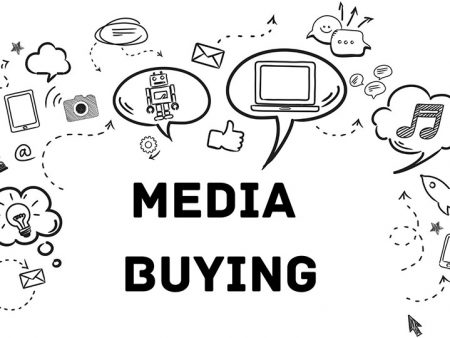Not all marketing efforts necessitate catchy taglines. Occasionally, fostering a profound connection with the audience aligns more with the brand’s vision, necessitating timely and cost-effective strategies. This includes media buying, a form of paid advertising employed by many brands to reach their target audience. This article aims to illuminate what media buying entails, the differences between media buying and planning, the various models of media buying, and its relevance in the iGaming industry.
Media Buying Explained
Media buying forms the crux of paid marketing, resonating with the audience by conveying the suitable information at the right platform and time. It’s a strategy that pinpoints and purchases advertisement spaces relevant to a specific audience. This technique applies to traditional modes of marketing like TV, radio, and print media, as well as modern digital channels such as social media, websites, and streaming platforms.
A successful media buying tactic can lead to wide-scale visibility to the targeted crowd, all while ensuring a budget-friendly ad expenditure.
Distinguishing Media Buying from Media Planning
Media Planning Explored
Media planning is fundamentally about comprehending the target audience, carrying out market investigations, determining a budget, and setting achievable objectives. Media planners discern the business’s target audience, the channels they frequent, their active times on these platforms, and the content they are inclined to engage with. This information is obtained through interactions with clients, following which they decide which channel to procure ad space on.
A Closer Look at Media Buying
Upon finalizing a media plan, media buyers work in conjunction with sales or account executives of the media brand, who are in charge of identifying pertinent advertisers and negotiating placements, timings, and costs.
Various Modes of Media Buying
Media buying can be performed in three ways:
- Manual Bidding: This involves bidding and acquiring ad space within the ad platform.
- Direct Buy: This refers to the purchase and sale of digital ads after negotiating rates and run-times with the advertiser.
- Programmatic Buy: This involves procuring ads directly from a specific channel or publisher, facilitated by real-time bidding, automation, and AI.
Traditional Media buying centers around Manual Bidding and Direct Buying, while Programmatic buying signifies an automated approach. A balanced combination of these methods ensures advertisers achieve their campaign objectives effectively.
Significance of Media Buying in iGaming Marketing and Brand Visibility
Recently, the iGaming industry has seen a rise in acquisitions and mergers. According to a report by Admix, over 81% of media buyers intend to either maintain or elevate in-game advertising expenditure in the next year and 83% expressing a keen interest in this format by 2025.
Data from Income Access suggests that consumers familiar with an iGaming brand are 5%- 10% more likely to convert than those unfamiliar with the offering. This fact underlines the influential role of retargeted media buys in acquisition tactics..
Traditional direct media buyers are not completely superseded by programmatic media buyers, as they provide a more customized approach to media buying and affiliate marketing.
Implications of Automated Advertising
The inception of the iGaming industry has seen the use of direct media buyers and ad networks to advertise on high-traffic websites. However, the cost-effectiveness of these tools is questionable as compared to programmatic buys.
Programmatic media buying centers on sophisticated ad targeting, leveraging software and data for efficient organization of media buying processes. Programmatic ad buyers have connections to data and ad exchanges through Demand-Side Platforms (DSPs). They are capable of acquiring highly targeted ad spaces in real-time.
Ad spaces are bid on in real-time on an individual impression basis, bringing the whole process to a close within seconds. This advanced form of media buying allows advertisers to focus more on direct player targeting.
Six different media buying models exist: CPM (Cost per Mile), CPC (Cost per Click), CPI (Cost per Impression), CPL (Cost per Lead), CPA (Cost per Acquisition), and CPS (Cost per Sale).
The predominantly used pricing model is CPM (Cost per Mile), where the impression rather than conversions determines payment for advertisers. CPC (Cost per Click) serves as an alternative model, where payment is based on actual click-throughs rather than per 1000-page impressions. While this model proves more cost-effective than CPM in terms of acquiring tools, it doesn’t assure conversions.
Google recently reported that Click-Through Rates (CTRs) for display ads targeting the UK and EU in the iGaming sector have been low. iGaming acquisition managers can improve CTRs by leveraging visually attractive creatives, using calls-to-action, providing bonus offers, and using rich media such as videos, which can accrue higher CTRs compared to traditional display ads.
In addition to all this, ensuring these campaigns are targeted at the suitable audience is crucial.
The value of media buying in one’s marketing endeavors cannot be emphasized enough, even though it requires some amount of trial and error to maintain optimal ad placement throughout a campaign. A diligent implementation of media buying strategies and negotiating tactics is essential for maintaining a consistent advertising presence.
In spite of the ongoing focus on display ads and media buying within iGaming brands, more options are available for targeted ads on social media platforms like Facebook and Twitter.
As for its significance in the iGaming industry, its impact is considerable, with substantial growth potential despite being a relatively young industry. However, an understanding and knowledge gap continues to hinder the full adoption of the iGaming model by advertisers.
iGaming brands seeking partnerships can consider Trackier for comprehensive multi-channel tracking and analytics, tailor-made for the iGaming, casino, and betting industries. A free trial is available for evaluating services.












